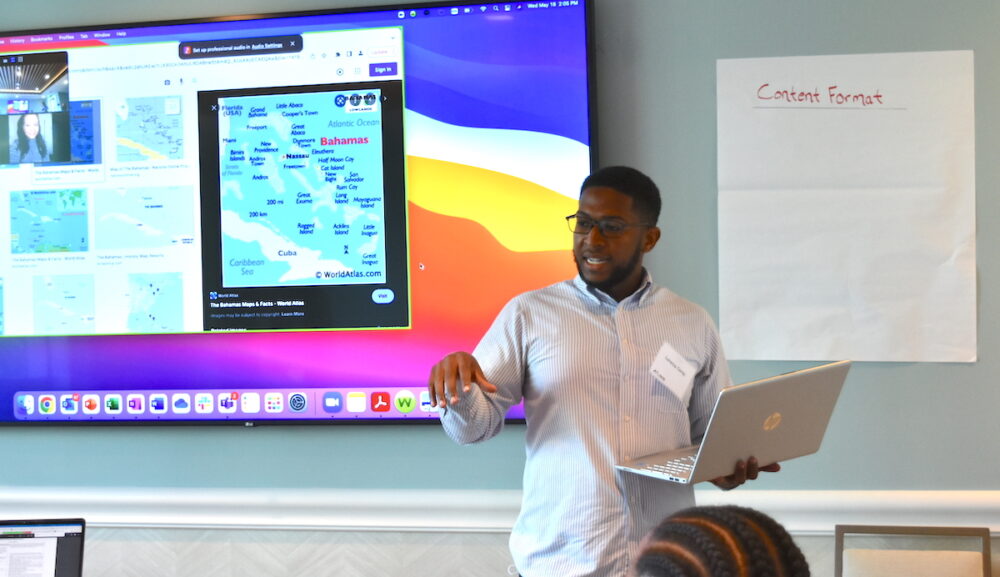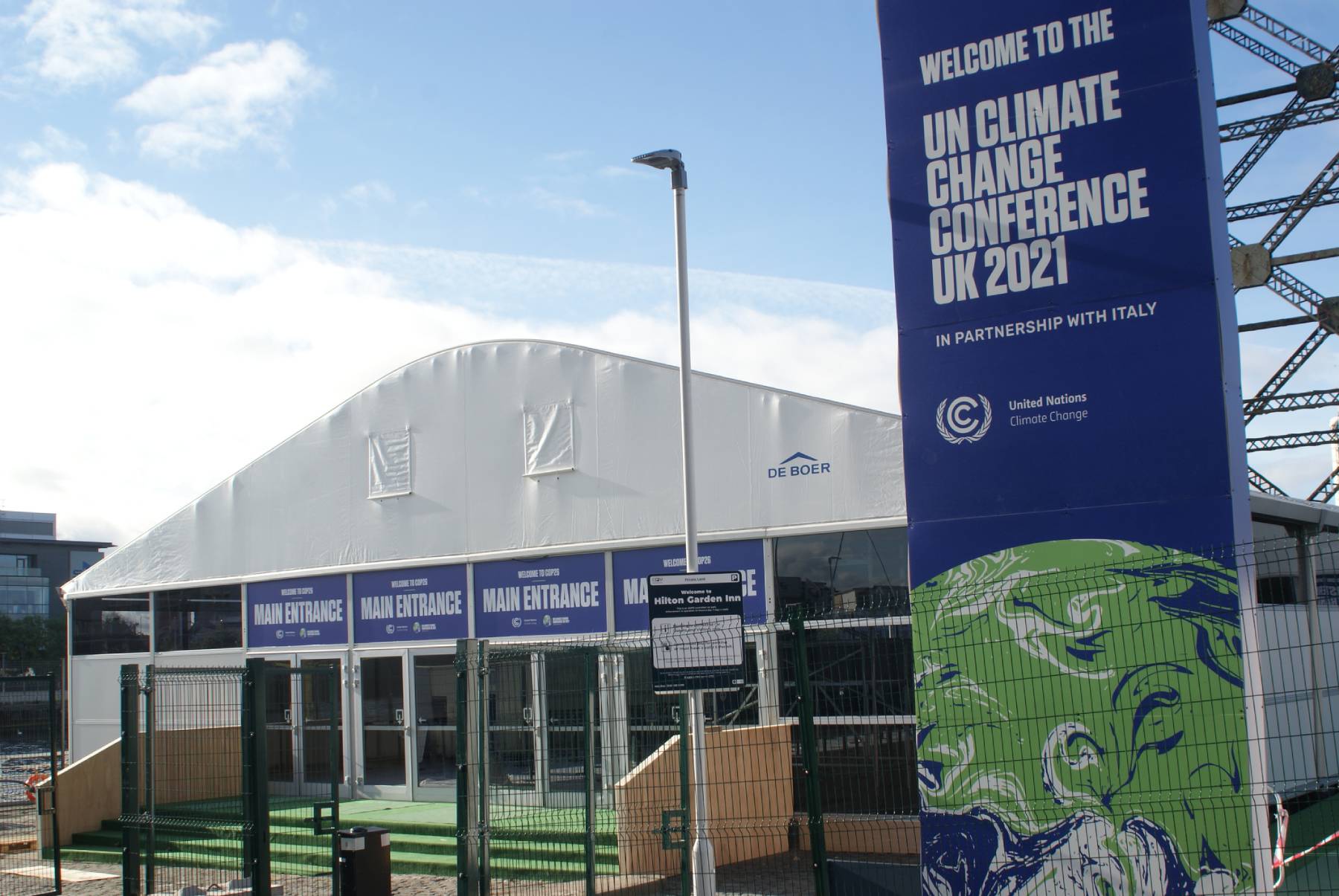Leading the Way in the Global South
By promoting community-led initiatives and educating new climate leaders, we’re flipping the familiar north-south script.
This is an excerpt from RMI's 2022 Annual Report.
Read the full report.
Developing economies face complex challenges in increasing their resilience to climate-related stresses while also transforming their economies to net zero. In the Global South, RMI is focusing our support to assist with these transitions.
RMI’s two capacity-building programs, the Climate Finance Access Network (CFAN) and the Energy Transition Academy (ETA), aim to flip the familiar north-south script. Rather than the north telling the south how to conduct this transition, we’re helping Global South economies to lead the way, promoting community-led initiatives, and educating new climate leaders with energy expertise.
This past year, both programs successfully graduated their first cohorts, training people throughout the Caribbean and Pacific regions on solar-plus-battery storage microgrid projects and climate finance respectively.
Knowledge Exchange in the Caribbean
In the Caribbean, the ETA fellowship program provided six mid- to senior-level energy practitioners from regional utilities with online training, hands-on project experience and support, and networking opportunities. “We want to help our partners reach their climate targets by 2030. But it’s not our role to be the ones doing it. Our goal is to equip people with the tools they need to get the work done locally,” says RMI’s Martyn Forde, who leads the ETA fellowship program.
Forde, originally from Barbados, says that he has seen a lot of development funding come into the Caribbean but local training is often seen as an add on. “I’ve seen a lot of projects where international consultants are hired to do the work, but local people are not brought in,” he adds. “We must engage the many local experts already in the region and support them to achieve their climate resilience targets.”
Participants in ETA’s first pilot program — from The Bahamas, the British Virgin Islands, and the US Virgin Islands — learned about developing and operating solar and battery microgrids, navigating regulatory frameworks for distributed renewables, and procurement and contract negotiations. The program was designed with their input to ensure the content is relevant and timely to their unique situations.
The program included weekly online sessions, an in-person summit in The Bahamas to visit renewable energy projects, and working sessions to apply aspects of the projects to their own work. ETA’s next cohort will expand to include managers, engineers, and other technical professionals from the Caribbean and Nigeria.
Supporting the Pacific in Unlocking Climate Finance
While there is a growing pool of funding available to help countries meet their climate goals and build community resilience, obstructive procedures and complex bureaucracy can make it difficult for some countries to access that money. CFAN aims to change that by embedding highly trained advisers in developing countries’ ministries and regional entities.
This year, CFAN advisors were drawn from island nations across the Pacific, many of which are already reckoning with worsening sea level rise, and include Fiji, Kiribati, Papua New Guinea, Samoa, the Solomon Islands, Tonga, Tuvalu, and Vanuatu. The eight advisors, most hired locally, received specialized training in how to attract climate investments, utilize innovative financing instruments, develop bankable projects, and improve project approval rates, all of which can ultimately increase climate finance flows into the countries.
Core to CFAN’s success is that it is country-driven, with training curricula informed by surveys CFAN conducted in 45 developing countries. Each training module was designed in direct response to priorities highlighted by the countries seeking support. One of the principal goals of the advisor training program is that the knowledge doesn’t just sit with the advisors, but that they are able to train others in what they have learned.
Starting in early 2022, CFAN advisors in the Pacific have been working in their government ministries, developing project concepts and proposals, and building bankable project pipelines. Among them, they have completed five concept notes, including climate smart agriculture, solar and resilient housing, and grid-connected solar and battery storage.
This summer, RMI celebrated the graduation of this cohort from CFAN’s intensive climate finance training. This rigorous program developed their skills in project design, finance, communication, and facilitation, while tailoring interventions to the specific needs of Pacific countries. CFAN next plans to deploy advisors in the Caribbean and Africa.
“At CFAN,” said Laetitia De Marez, director of CFAN, “we aim to take a practical approach to addressing the climate challenge, one that is driven by country priorities and is fundamentally people centered. In this effort to unlock climate finance, our advisors are the tip of the spear.”
Case study: Community Energy Resilience in Puerto Rico
RMI’s Community Energy Resilience Initiative — founded in collaboration with the Global Energy Alliance for People and Planet and Fundación Comunitaria de Puerto Rico — fosters equitable access to affordable, resilient, and clean energy in lower- and middle-income communities in Puerto Rico. This past year, the initiative supported the installation of three microgrid solar and storage systems on the island — at a pharmacy, a nonprofit that focuses on pre-vocational education and social services, and a fueling station — pioneering a new model for local resilience.
Meet Lorenza Carey, ETA Fellow
Lorenza Carey remembers playing as a kid in his home in The Bahamas, and suddenly, the lights would go dark. In fact, growing up in the islands, you know that at some point, the power is going to go out. These abrupt endings of playtime moments were what intrigued him to create a reliable source of energy for kids all over The Bahamas. When Carey’s grade school had a “dress up as your dream job” day, he sported a hard hat, a vest, and steel-toed boots. “Mrs. Burrows, I want to be an electrical engineer, I want to work in the power industry,” he told his fifth-grade teacher. Many years later, Carey’s dream came true, and he now works as an electrical engineer for his local utility, Bahamas Power and Light, helping The Bahamas energy system become more resilient and reliable through renewable energy. “The in-person experience [of the ETA Fellows Summit in The Bahamas] not only allowed us to network but to share experience. It has created a lasting bond. The best moment was coming to the summit in person to meet the fellows and the RMI team.”


“We aim to take a practical approach to addressing the climate challenge, one that is driven by country priorities and is fundamentally people centered.”
—Laetitia De Marez, Director of CFAN